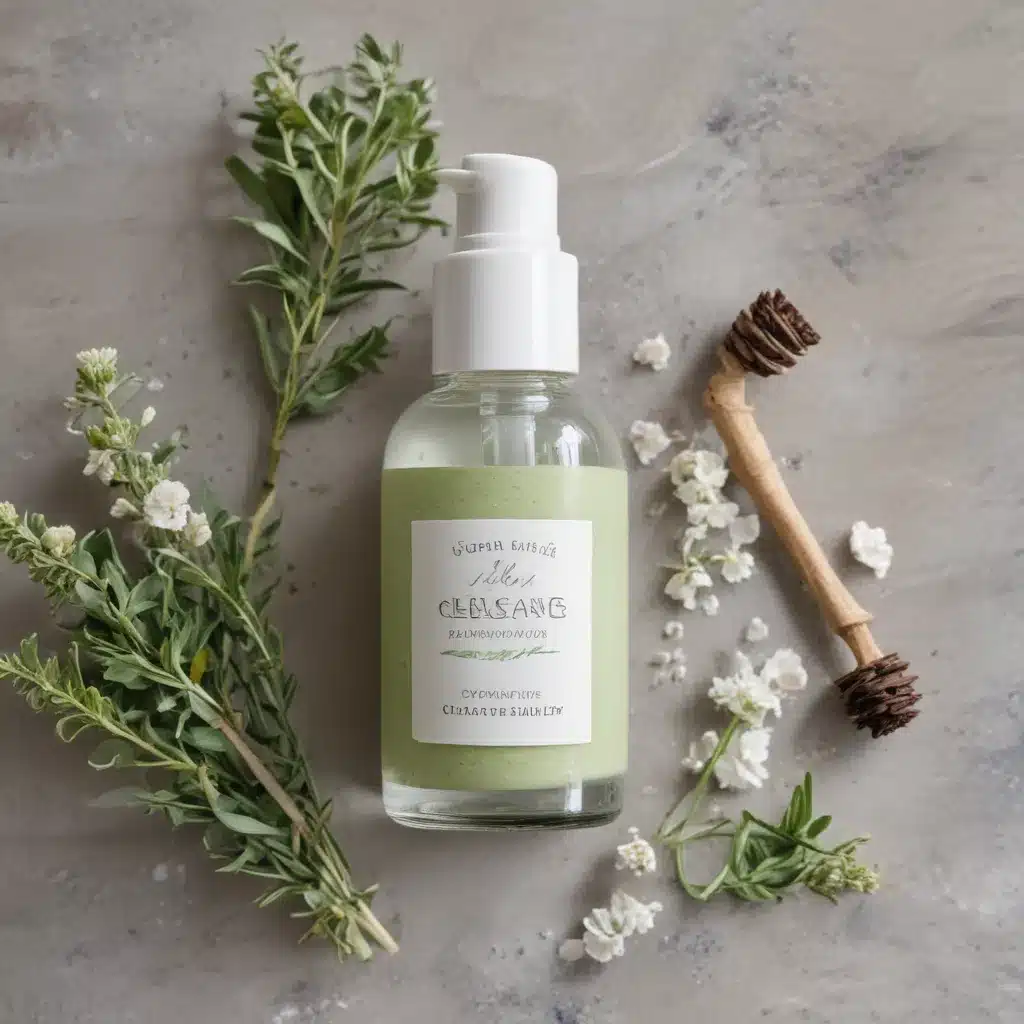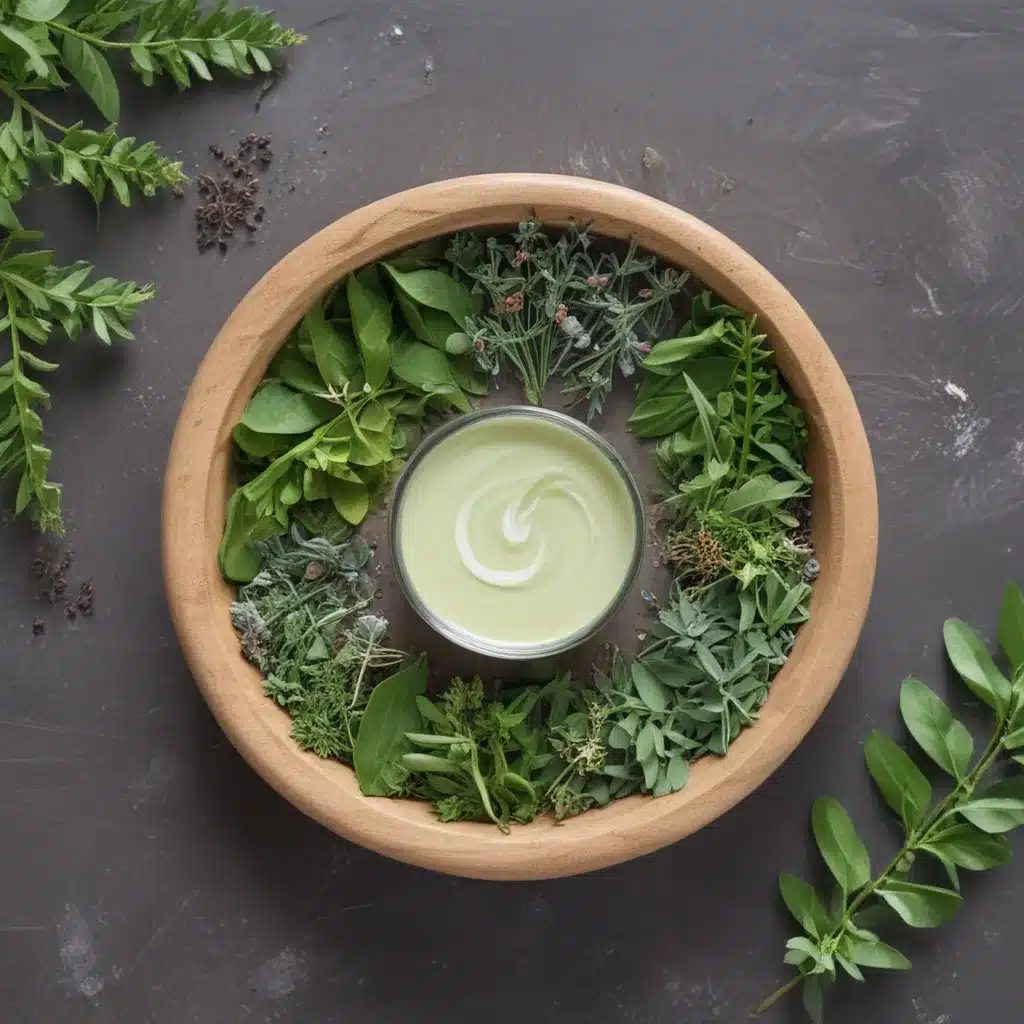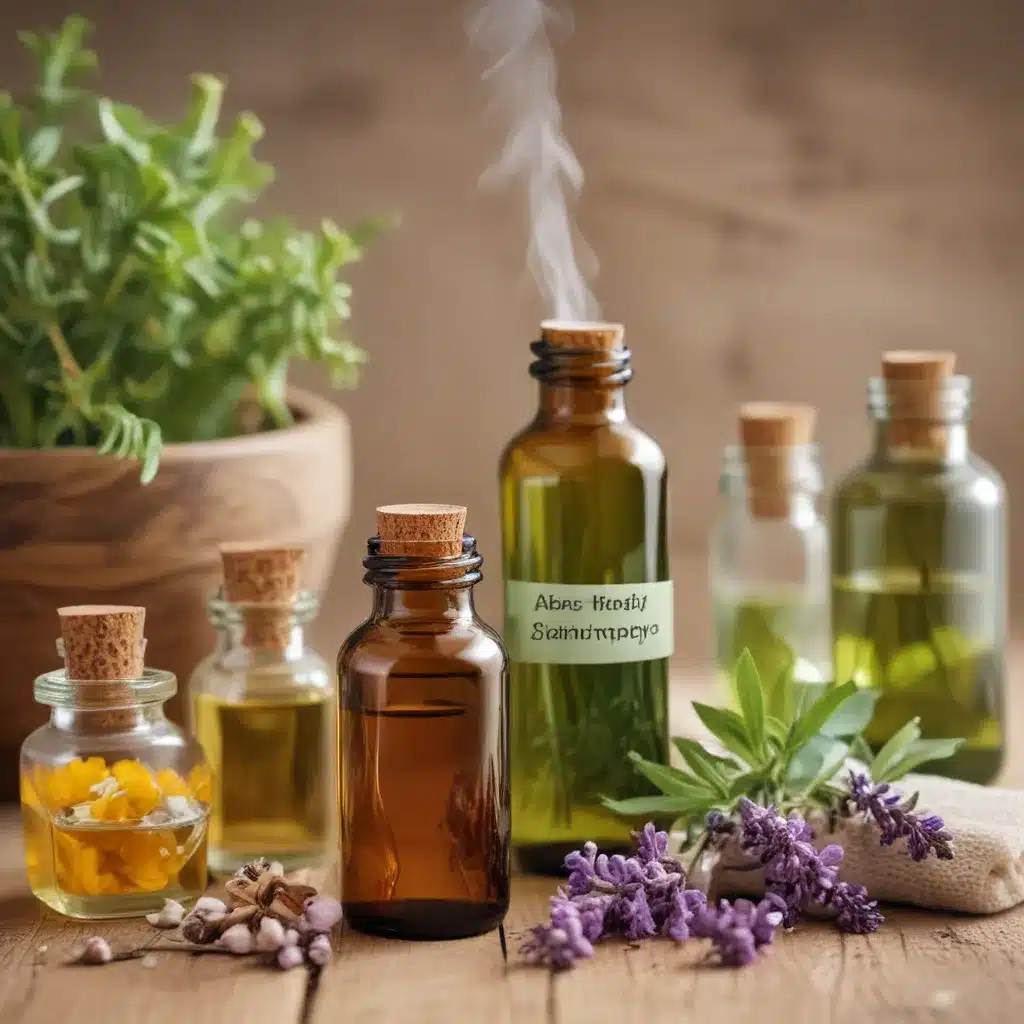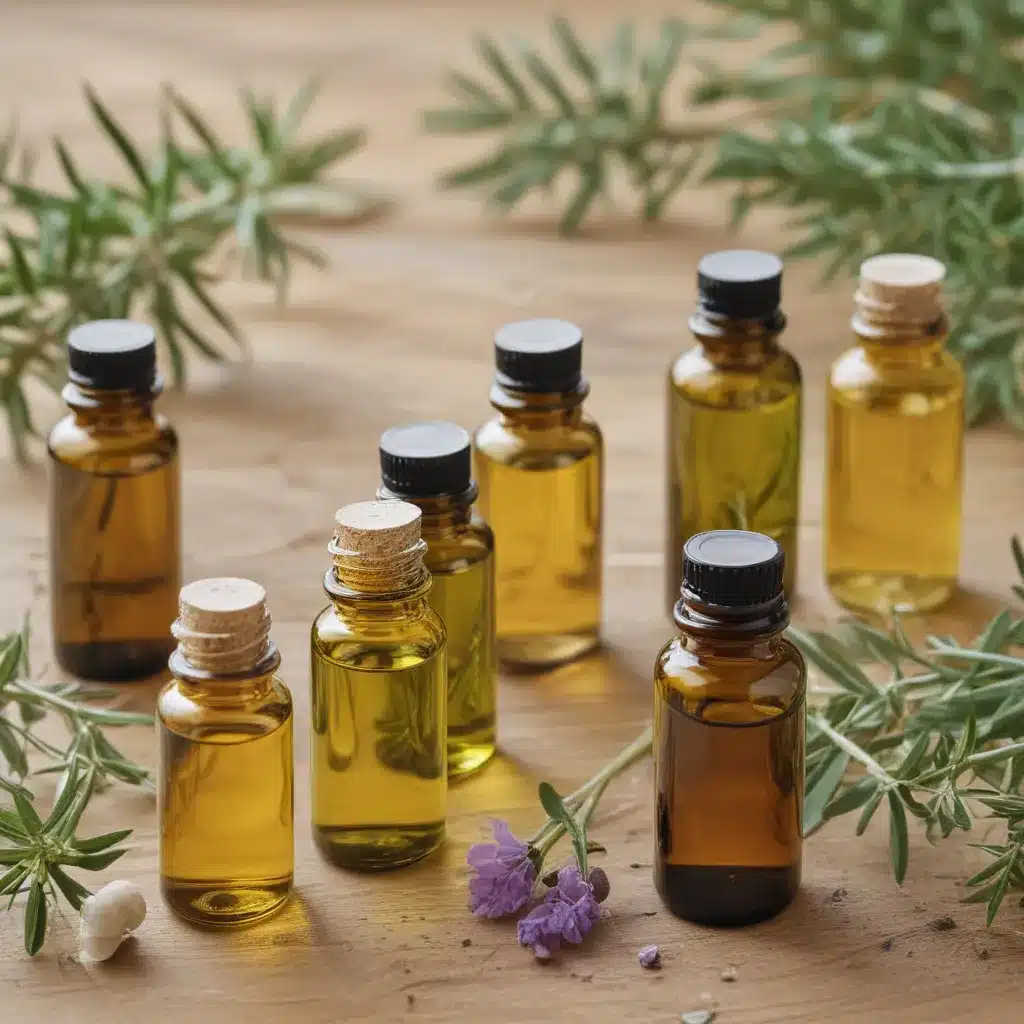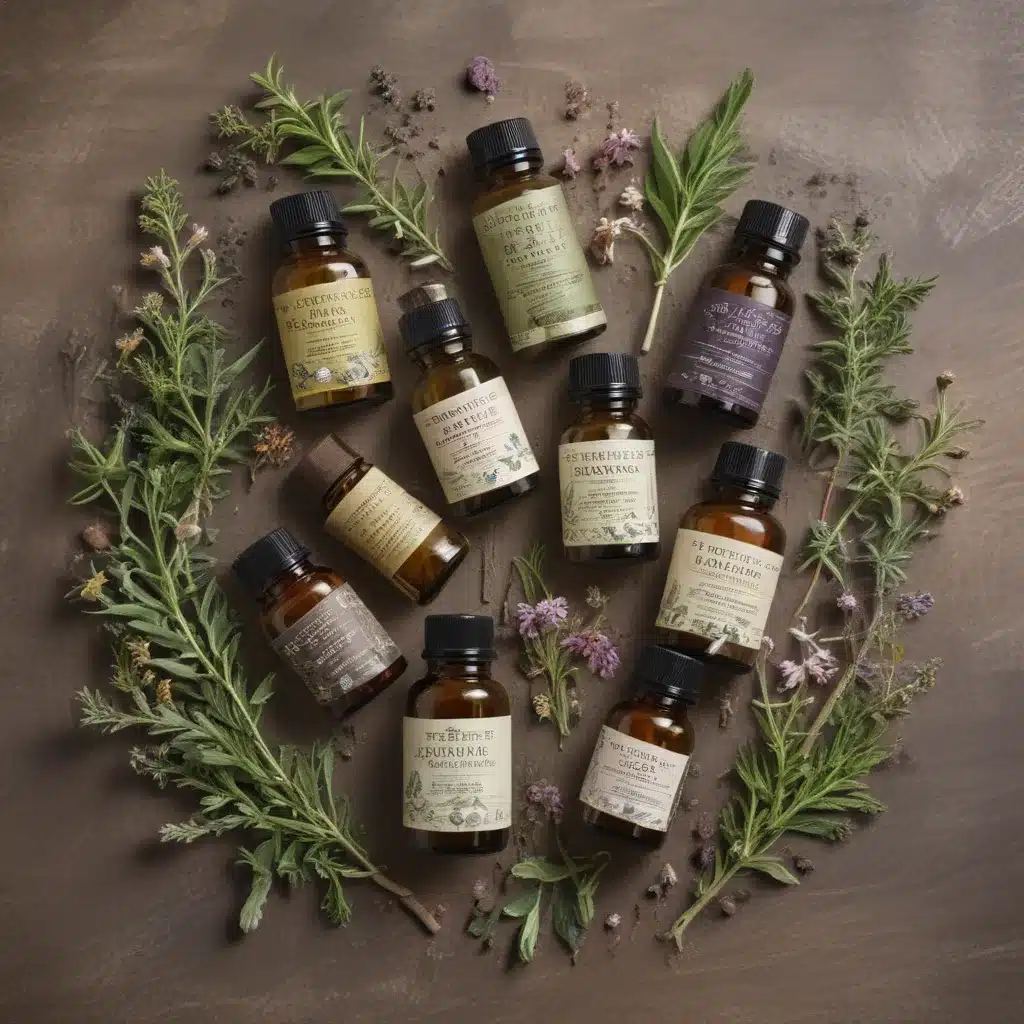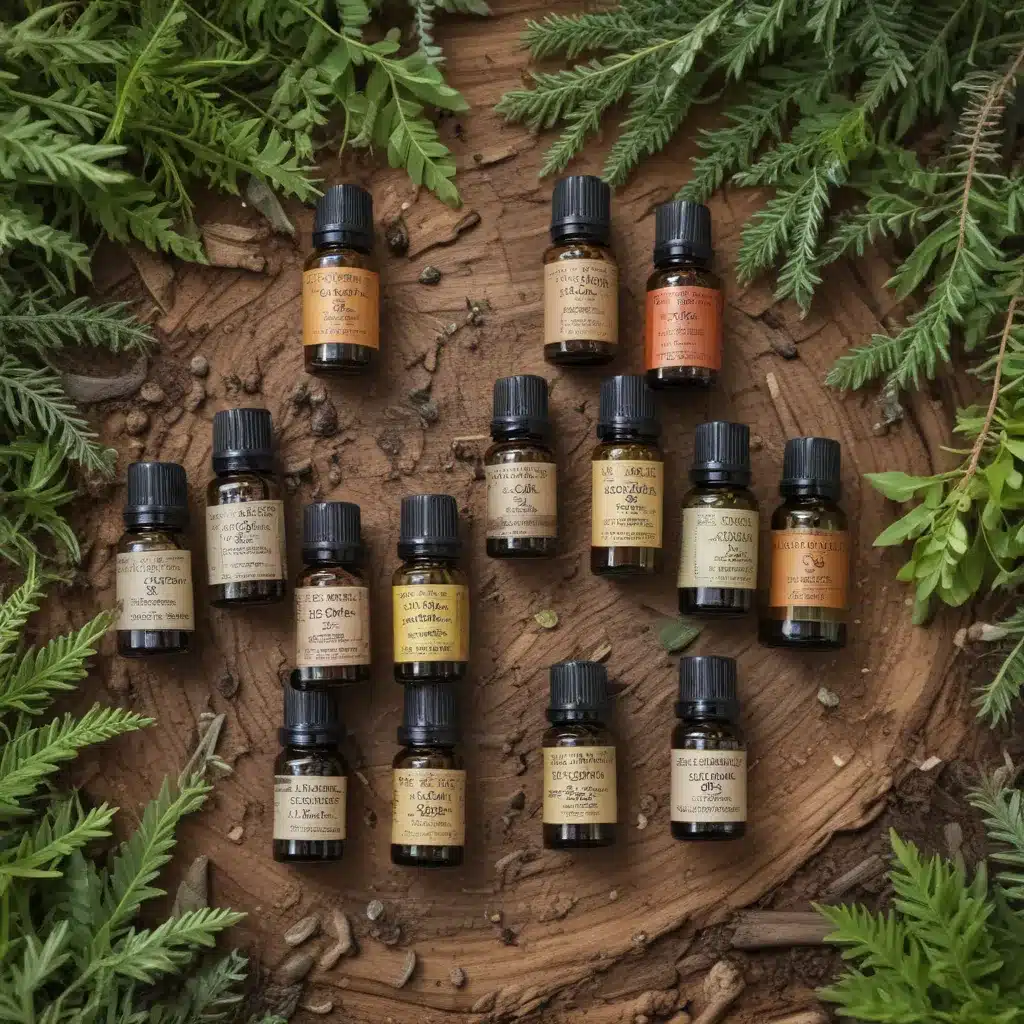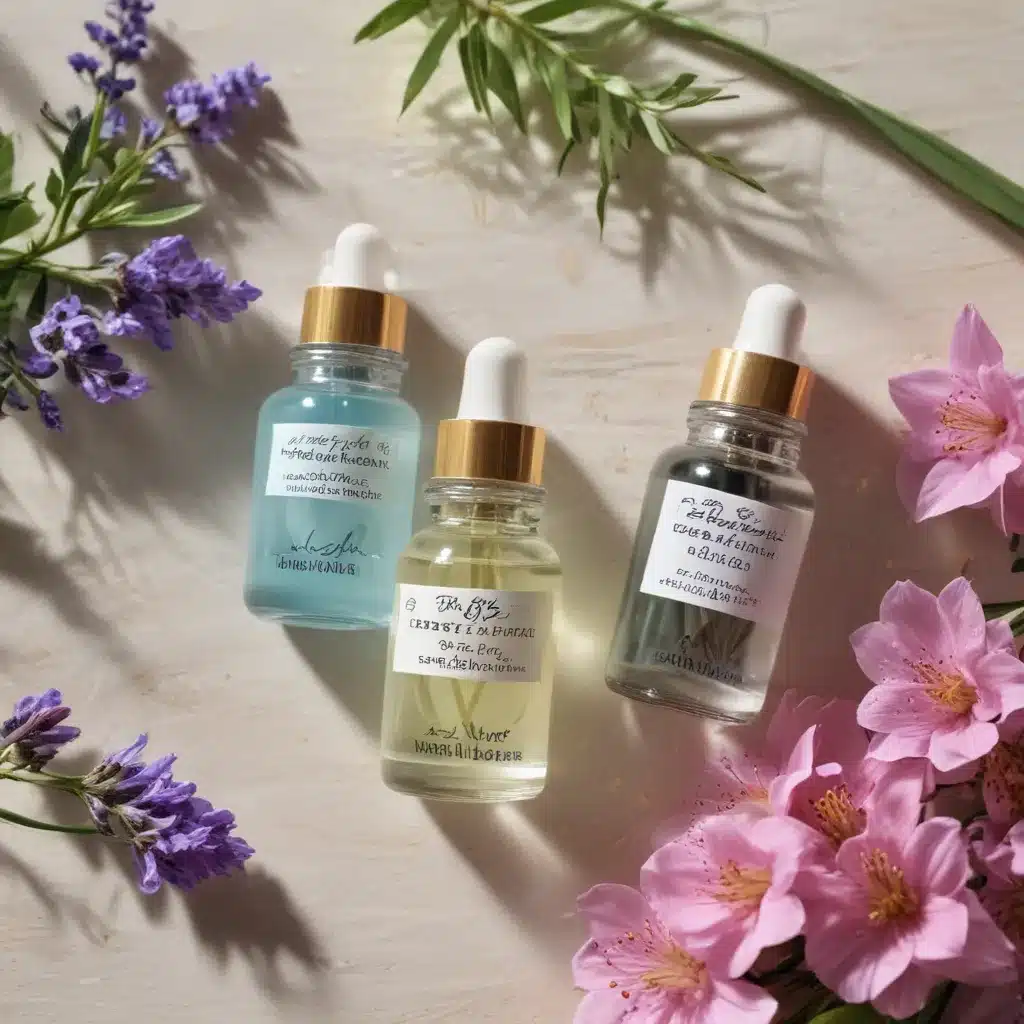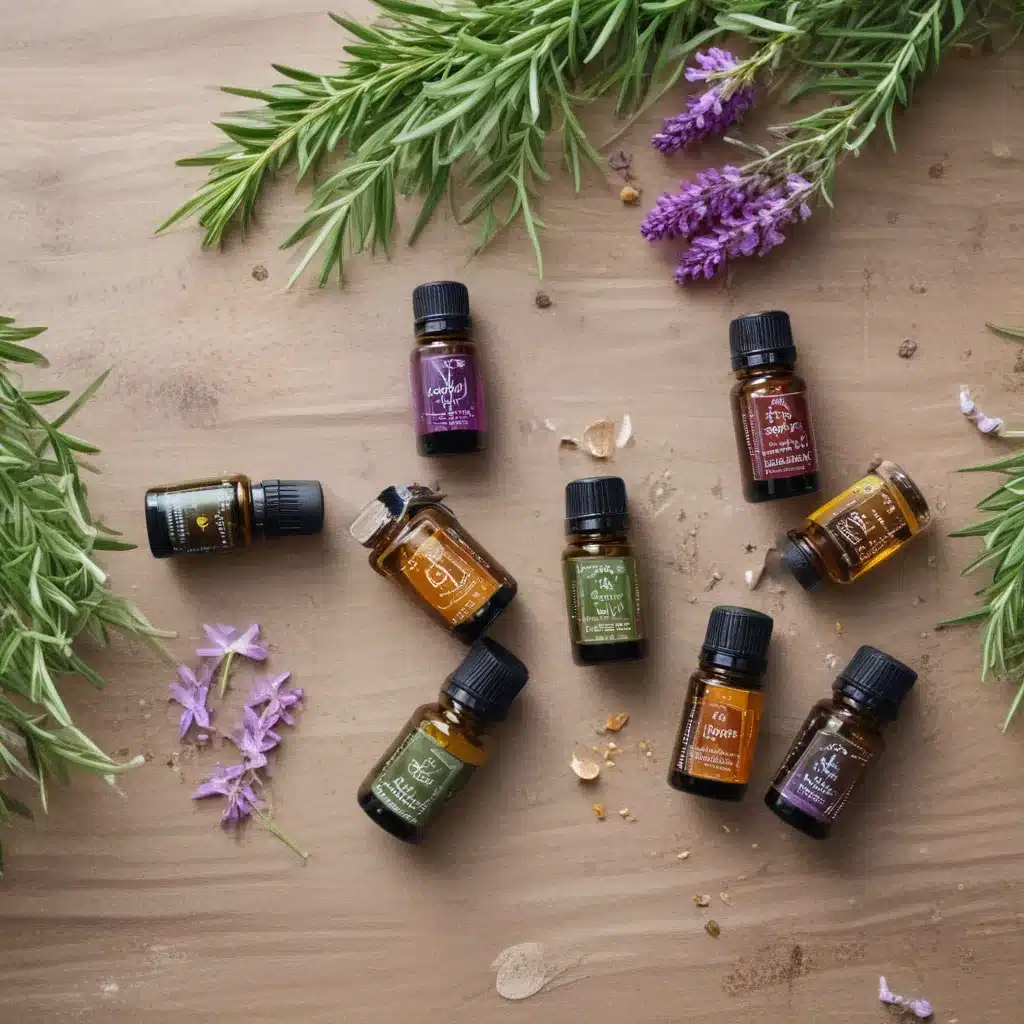
Achieving flawless skin can feel like an insurmountable challenge, especially when battling persistent acne and blemishes. However, there is a natural solution that might just surprise you with its effectiveness. Essential oils have long been praised for their potent skincare benefits, offering a gentle yet powerful approach to tackling skin concerns. From the renowned Tea Tree Oil for acne to the soothing Lavender Oil for blemishes, these natural remedies have the potential to transform your skincare routine.
Benefits of Essential Oils
In my experience, essential oils offer a range of benefits for controlling acne and blemishes. Through their aromatherapy benefits and skin rejuvenation properties, essential oils provide a natural way to combat skin issues and promote a healthier complexion. These oils are renowned for their acne-fighting properties and are often used in natural skincare routines to address blemishes effectively.
Aromatherapy benefits play a key role in the effectiveness of essential oils for acne and blemish control. The fragrances of these oils can positively impact mood and stress levels, which in turn can help reduce acne breakouts triggered by stress. Additionally, the soothing scents of essential oils can create a calming environment that promotes relaxation, potentially aiding in reducing skin inflammation that contributes to acne.
Essential oils are known for their skin rejuvenation properties. Many essential oils possess antioxidants and anti-inflammatory compounds that can help repair and revitalize the skin. By incorporating essential oils into your skincare regimen, you can support the skin’s natural healing process, leading to a clearer and more radiant complexion over time.
Tea Tree Oil for Acne
Tea Tree Oil is a well-known natural remedy for acne due to its potent antibacterial and anti-inflammatory properties. When it comes to skincare, using Tea Tree Oil can work wonders. Here are some benefits and tips for using Tea Tree Oil effectively:
- Tea Tree Oil Benefits
- Tea Tree Oil is renowned for its antibacterial properties, which can help combat acne-causing bacteria on the skin.
- Its anti-inflammatory properties can reduce redness and swelling associated with acne, promoting a clearer complexion.
- Tea Tree Oil is a natural alternative to harsh chemicals often found in acne treatments, making it gentle on the skin.
Regarding application and effectiveness, Tea Tree Oil can be a game-changer for your skincare routine. To apply Tea Tree Oil effectively, dilute it with a carrier oil like jojoba or coconut oil to prevent skin irritation. You can then use a cotton swab to apply the diluted oil directly to blemishes or acne-prone areas. Additionally, incorporating Tea Tree Oil into your skincare regimen consistently can help prevent future breakouts and promote overall skin health.
Lavender Oil for Blemishes
With its soothing properties and potential benefits for skin health, Lavender Oil emerges as a promising solution for addressing blemishes. Lavender oil, derived from the lavender plant, is known for its calming aroma and numerous benefits for skin care. When it comes to blemish control, this essential oil offers a gentle yet effective option for promoting clearer skin.
| Benefits of Lavender Oil | Skin Care |
|---|---|
| Reduces inflammation | Lavender oil is known for its anti-inflammatory properties, which can help in calming irritated skin and reducing redness associated with blemishes. |
| Antimicrobial properties | The antimicrobial properties of lavender oil may assist in fighting off acne-causing bacteria, potentially preventing new breakouts. |
| Skin regeneration | Lavender oil can aid in promoting skin regeneration, helping to fade blemishes and supporting overall skin health. |
| Relaxation and stress relief | Apart from its skincare benefits, the aromatherapy aspect of lavender oil can also help in reducing stress levels, which may indirectly benefit skin health. |
Incorporating Lavender Oil into your skincare routine may offer a natural and gentle way to address blemishes. Whether used topically or in aromatherapy practices, the multi-faceted benefits of lavender oil make it a versatile option for those seeking clearer, healthier skin.
Rosehip Oil for Skin Healing
Rosehip oil, renowned for its skin-nourishing properties, is a valuable remedy for promoting skin healing and rejuvenation. This natural oil derived from the seeds of rose bushes is packed with nutrients that benefit the skin in various ways. Some of the key benefits of rosehip oil for skin healing include:
- Rich in Antioxidants: The high concentration of antioxidants in rosehip oil helps combat free radicals, reducing skin damage and promoting healing from within.
- Vitamin-Rich Formula: Loaded with vitamins A, C, and E, rosehip oil nourishes the skin, supports collagen production, and aids in the repair of damaged skin cells.
- Moisture Retention: The hydrating properties of rosehip oil help improve skin elasticity, reduce dryness, and accelerate the healing process of scars and blemishes.
Peppermint Oil for Pore Cleansing
Peppermint oil, renowned for its cleansing properties, is a beneficial option for addressing pore concerns and promoting skin clarity. When it comes to pore cleansing techniques and natural remedies, peppermint oil stands out for its invigorating effect on the skin. The benefits of peppermint oil extend beyond its invigorating scent; it has astringent properties that can help unclog pores, making it a valuable addition to your skincare routine.
Peppermint oil’s skin invigorating effect can help reduce inflammation and redness associated with acne, making it an effective remedy for those struggling with blemishes. Its cleansing properties also make it ideal for removing excess oil and dirt from the skin, which can contribute to pore blockages and breakouts.
To incorporate peppermint oil into your skincare regimen for pore cleansing, you can mix a few drops with a carrier oil like jojoba or coconut oil. Gently massage the mixture onto your skin, focusing on areas where pores appear enlarged or clogged. The invigorating sensation of peppermint oil will not only leave your skin feeling revitalized but also contribute to a clearer complexion over time.
Bergamot Oil for Oil Control
Bergamot oil is known for its ability to balance oily skin by regulating sebum production. It can help control excess oil on the skin, which in turn prevents acne breakouts. Incorporating bergamot oil into your skincare routine may assist in maintaining a clearer complexion by managing oil levels effectively.
Balances Oily Skin
To regulate excess sebum production on the skin, a natural solution involves incorporating the essential oil known for its oil-controlling properties. Bergamot oil is a powerful tool in maintaining balanced and healthy skin by controlling excess oil production. Here are some key benefits of using Bergamot oil:
- Reduces shine and mattifies the skin for a smooth complexion.
- Minimizes the appearance of enlarged pores, giving the skin a refined look.
- Helps to maintain a clear and blemish-free complexion by regulating oil levels.
Incorporating Bergamot oil into your skincare routine can help manage oily skin effectively, promoting a more balanced and radiant complexion.
Controls Sebum Production
Regulating sebum production is vital for maintaining skin health, ensuring a balanced complexion free from excess oil. When dealing with oily skin, incorporating sebum-regulating essential oils like Bergamot Oil into your skincare routine can help restore harmony. Bergamot Oil is known for its natural astringent properties, which can assist in controlling sebum production and preventing the skin from looking greasy. By adding a few drops of Bergamot Oil to your daily skincare routine, you can effectively manage oily skin and promote a healthier complexion. Remember, balance is key when it comes to skincare, and natural remedies like Bergamot Oil can be a valuable addition to your regimen for sebum regulation.
Prevents Acne Breakouts
When managing oily skin, incorporating essential oils with natural astringent properties can be effective in preventing acne breakouts and maintaining a balanced complexion. Bergamot oil, in particular, is a powerful ally in skincare routines aimed at preventing breakouts. Here are some key benefits of using Bergamot oil for oil control:
- Regulates sebum production to prevent clogged pores
- Fights acne-causing bacteria for clearer skin
- Soothes inflammation and redness for a calmer complexion
Eucalyptus Oil for Anti-Inflammation
Eucalyptus oil is known for its ability to soothe skin redness and reduce swelling effectively. Its anti-inflammatory properties make it a valuable asset in combatting acne and blemishes. Understanding how eucalyptus oil works to calm inflammation can help in achieving clearer and healthier skin.
Soothes Skin Redness
Using eucalyptus oil can effectively reduce skin redness and inflammation due to its anti-inflammatory properties. This natural remedy is a holistic skincare approach to managing skin inflammation. When applying eucalyptus oil, you may experience the following benefits:
- Cooling sensation that calms irritated skin
- Reduction in redness and blotchiness
- Soothing relief for inflamed areas
Reduces Swelling Effectively
To effectively reduce swelling and combat inflammation, incorporating eucalyptus oil into your skincare routine can provide notable benefits. Eucalyptus oil is known for its powerful anti-inflammatory properties, making it an excellent choice for addressing skin inflammation and reducing swelling. When applied topically, eucalyptus oil can help soothe irritated skin, calm redness, and promote a more balanced complexion. Its cooling effect can also provide relief for inflamed areas, helping to minimize swelling and discomfort. By incorporating eucalyptus oil into your skincare regimen, you can effectively target issues related to skin inflammation and promote a healthier, clearer complexion. Experience the soothing and anti-inflammatory benefits of eucalyptus oil for effective swelling reduction and skin inflammation control.
Anti-Inflammatory Properties Explained
One potent natural remedy renowned for its anti-inflammatory prowess is eucalyptus oil, showcasing impressive potential in alleviating skin inflammation. Eucalyptus oil aids in inflammation control through its soothing properties, promoting a calmer complexion. Its anti-inflammatory effects also contribute to skin healing by reducing redness and irritation, fostering a clearer skin appearance. Additionally, eucalyptus oil’s natural remedies extend to combating acne-causing bacteria, further enhancing its role in promoting skin health.
- Soothing properties for calming inflammation
- Reducing redness and irritation for skin healing
- Combatting acne-causing bacteria for clearer skin
Chamomile Oil for Soothing Skin
Chamomile oil offers a gentle and effective solution for soothing irritated skin, making it a popular choice for those seeking relief from inflammation and redness. Its chamomile benefits lie in its skin soothing properties, which can help calm sensitive skin and reduce redness caused by various factors such as acne breakouts or environmental stressors. The oil is known for its anti-inflammatory and antioxidant properties, making it a valuable addition to skincare routines aimed at promoting healthy and clear skin.
I have personally found chamomile oil to be a comforting remedy for my skin issues. When my skin is feeling irritated or inflamed, applying chamomile oil helps to alleviate discomfort and reduce redness. Its gentle nature makes it suitable for those with sensitive skin, providing a soothing sensation without causing further irritation. I have noticed a visible improvement in the overall appearance of my skin after incorporating chamomile oil into my skincare regimen.
Geranium Oil for Skin Balancing
Having discussed the benefits of chamomile oil for soothing skin, the focus now shifts to the skin-balancing properties of geranium oil. Geranium oil is a versatile essential oil known for its numerous benefits when it comes to achieving balanced and clear skin. Here are some key aspects to vital:
- Geranium Oil Benefits:
- Geranium oil is renowned for its ability to regulate sebum production, making it an excellent choice for both oily and dry skin types.
- Its antibacterial properties help combat acne-causing bacteria, reducing the occurrence of breakouts.
- The astringent properties of geranium oil assist in tightening the skin and minimizing the appearance of pores, promoting a smoother complexion.
When it comes vital application, incorporating geranium oil into your skincare routine can be highly beneficial. Here are some skin-balancing techniques and tips to make the most out of this essential oil:
- Skin Balancing Techniques, Tips:
- Add a few drops of geranium oil to your favorite carrier oil or moisturizer and apply it to your face after cleansing.
- Create a DIY toner by mixing geranium oil with witch hazel and water to help balance the skin’s pH levels.
- For a relaxing experience, mix geranium oil with a carrier oil and use it in a facial massage to promote circulation and skin vitality.
Lemon Oil for Brightening Complexion
I will now shed light on the skin-brightening benefits of Lemon Oil and how to effectively apply it. Lemon Oil is known for its ability to help even out skin tone and improve complexion radiance. By incorporating Lemon Oil into your skincare routine, you can achieve a brighter and more luminous complexion.
Skin Brightening Benefits
Utilizing lemon oil can effectively enhance the complexion by brightening the skin tone and reducing the appearance of dark spots and blemishes. This natural remedy offers skin brightening benefits that can result in a more radiant and even skin tone. When incorporating lemon oil into your skincare routine, you may experience:
- Increased skin hydration, providing a plump and healthy appearance.
- Enhanced glow that illuminates your complexion, giving it a youthful radiance.
- Reduction in the visibility of dark spots and blemishes, leading to a smoother and more even skin texture.
Lemon Oil Application
Upon incorporating lemon oil into your skincare regimen, you can harness its brightening properties to achieve a more luminous complexion and diminish the appearance of dark spots and blemishes. Lemon oil benefits your skin by helping to reduce hyperpigmentation and dark spots, giving your skin a radiant glow. Its natural acidity aids in exfoliating the skin, promoting cell turnover, and revealing a brighter complexion. Regular use of lemon oil can also help in reducing oiliness and improving overall skin tone. The skin brightening effects of lemon oil are attributed to its high vitamin C content, which works as an antioxidant, protecting the skin from damage and promoting a more even skin tone. Incorporating lemon oil into your skincare routine can lead to a clearer, more radiant complexion.
Frankincense Oil for Scarring
Frankincense oil is commonly used to help reduce the appearance of scarring caused by acne and other skin conditions. This essential oil offers numerous benefits for scar healing properties, making it a popular choice for those looking to improve the overall look and feel of their skin.
- Promotes Skin Regeneration: Frankincense oil is known for its ability to promote the regeneration of skin cells, which can help to fade scars over time.
- Reduces Inflammation: The anti-inflammatory properties of frankincense oil can help to calm irritated skin, reducing redness and swelling associated with scarring.
- Improves Skin Tone: Regular use of frankincense oil can help to even out skin tone and texture, minimizing the appearance of scars and blemishes.
When using frankincense oil for scarring, it is essential to dilute it with a carrier oil such as coconut or jojoba oil to prevent skin irritation. Apply a small amount of the diluted mixture to the affected area and gently massage it into the skin. Consistent use of frankincense oil can lead to visible improvements in the appearance of scars, helping you achieve clearer and healthier-looking skin.
Clary Sage Oil for Hormonal Acne
To address hormonal acne, Clary Sage oil is a beneficial natural remedy known for its potential to balance skin oils and reduce breakouts. Clary sage benefits include its ability to regulate sebum production, making it particularly effective for those dealing with hormonal fluctuations that lead to acne breakouts. This essential oil contains linalyl acetate, an ester known for its anti-inflammatory properties, which can help soothe irritated skin often associated with hormonal acne.
Hormonal acne control is a common concern, especially for individuals experiencing changes in hormone levels during puberty, menstrual cycles, pregnancy, or menopause. Clary Sage oil offers a gentle yet effective solution to address this type of acne. By applying diluted Clary Sage oil to the skin, you can potentially reduce the severity and frequency of hormonal breakouts.
Incorporating Clary Sage oil into your skincare routine can help rebalance your skin, leading to a clearer complexion over time. It is important to note that essential oils should be used cautiously and always diluted with a carrier oil to prevent skin irritation. When used correctly, Clary Sage oil can be a valuable tool in managing hormonal acne and promoting overall skin health.
Juniper Berry Oil for Detoxification
Juniper Berry oil is renowned for its detoxifying properties, making it a valuable tool in promoting skin health and clarity. This essential oil offers impressive detoxification benefits that can aid in purifying the skin, helping to combat acne and blemishes effectively.
When using Juniper Berry oil for skin purification, here are a few key benefits to keep in mind:
-
Deep Cleansing: The oil penetrates deep into the pores, helping to remove toxins and impurities that can lead to breakouts.
-
Balancing Sebum Production: By regulating the skin’s natural oil production, Juniper Berry oil can prevent excess oil buildup that contributes to acne.
-
Antibacterial Properties: Its antibacterial properties can help eliminate acne-causing bacteria on the skin’s surface, reducing the risk of new breakouts.
Incorporating Juniper Berry oil into your skincare routine can provide a natural and effective way to detoxify the skin, promoting a clearer complexion. Remember to dilute the oil properly before applying it to the skin and perform a patch test to confirm compatibility.
Cedarwood Oil for Acne Prevention
I will now introduce the benefits, application methods, and potential side effects of using Cedarwood Oil for acne prevention. This essential oil is known for its anti-inflammatory properties and can help reduce redness and swelling associated with acne. It can be applied topically by diluting it with a carrier oil or added to skincare products for targeted treatment.
Cedarwood Oil Benefits
Enhancing skin clarity and promoting a balanced complexion, Cedarwood oil offers effective acne prevention benefits. Cedarwood oil benefits for acne prevention are attributed to its skin rejuvenation properties, making it a valuable addition to skincare routines. Here are some key advantages of using Cedarwood oil:
- Balancing Sebum Production: Cedarwood oil helps regulate sebum production, preventing excess oil that can clog pores and lead to acne.
- Antibacterial Properties: The oil’s antibacterial properties combat acne-causing bacteria, reducing the risk of breakouts.
- Anti-inflammatory Effects: Cedarwood oil’s anti-inflammatory effects help soothe redness and irritation associated with acne, promoting clearer skin.
Integrating Cedarwood oil into your skincare regimen can contribute to maintaining a healthy and blemish-free complexion.
Application Methods
Utilizing Cedarwood oil for acne prevention involves employing various application methods to maximize its efficacy in promoting clear and healthy skin. For steam therapy, add a few drops of Cedarwood oil to a bowl of hot water, place a towel over your head to trap the steam, and allow your skin to absorb the cleansing vapors. For spot treatment, dilute Cedarwood oil with a carrier oil and apply directly to blemishes to help reduce inflammation and promote healing. Incorporating Cedarwood oil into face masks can help purify the skin and prevent breakouts. Additionally, mixing Cedarwood oil with water in a spray bottle makes an effective toner spray for daily use. These application methods can enhance the benefits of Cedarwood oil in your acne prevention routine.
Potential Side Effects
When considering the use of Cedarwood oil for acne prevention, it is important to be aware of potential side effects that may arise. While Cedarwood oil is generally safe for most people, there are some potential risks to keep in mind, especially when used in high concentrations or for extended periods. Some of the long term effects that can occur include skin irritation, redness, and dryness. It is essential to perform a patch test before using Cedarwood oil on larger areas of the skin to guarantee compatibility. If any adverse reactions occur, discontinue use immediately and consult with a healthcare professional. Remember, moderation is key when incorporating Cedarwood oil into your acne prevention routine.
- Skin irritation
- Redness
- Dryness
Conclusion
To summarize, essential oils offer a natural and effective solution for acne and blemish control. Did you know that a study found tea tree oil to be as effective as benzoyl peroxide in reducing acne lesions? Incorporating these oils into your skincare routine can help improve your skin’s health and appearance. Remember to always do a patch test before using any essential oil and consult with a healthcare professional if you have any skin concerns.


